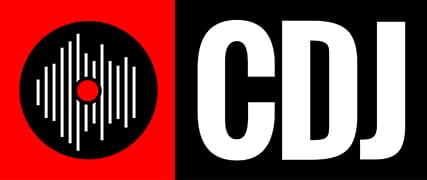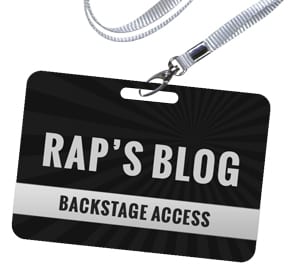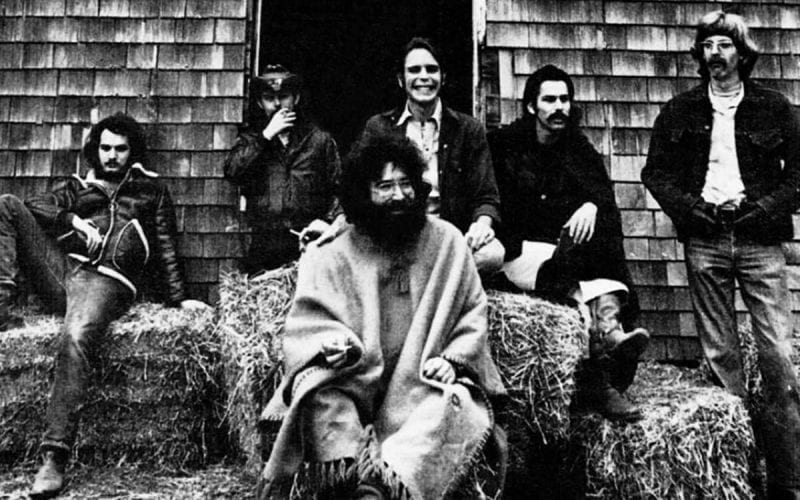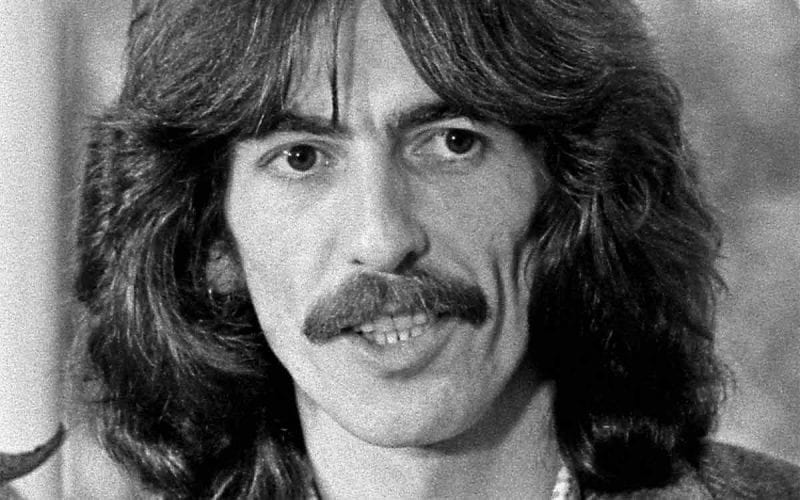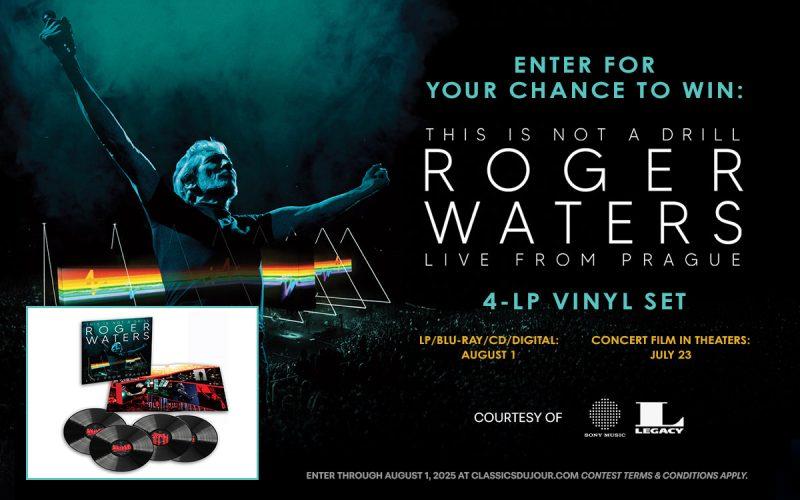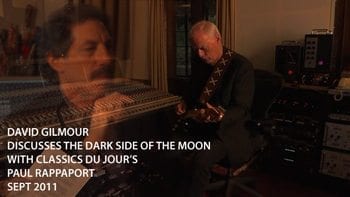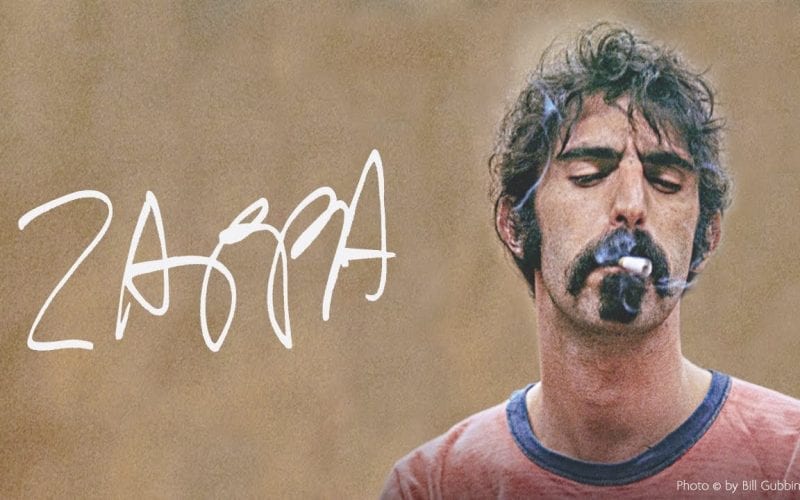
Have you watched the Frank Zappa documentary? It’s one of the very best and most moving films you’ll ever see. I spent $6.99 to watch it and would have spent $100.00. It’s that good, that compelling, and that important.
Unless you’re an avid fan, you probably don’t know that much about Frank Zappa. I know I didn’t. To me, Frank was this far-out guy who played quirky music with alluring lyrics that made you think. I never actually listened to his albums much, but I admired and had the utmost respect for what he did. He was the thinking man’s rock artist.
But it turns out he was so much more than that. He was a brilliant composer reimagining how music might be created. And beyond all The Mothers of Invention music, he also wrote a copious amount of some of the most amazing pieces written for a 36-piece orchestra.
Frank Zappa was remarkably self-taught and was already composing symphonic works when he was in high school. One of his biggest influences was Edgard Varese, a French composer who spent most of his career in the United States.
I found this on Wikipedia: Varese’s music emphasizes timbre and rhythm (Frank’s first instrument was the drums). He coined the term “organized sound” in reference to his own musical aesthetic. Varese’s conception of music reflected his vision of “sound as living matter” and of “musical space as open rather than bounded.” He conceived the elements of his music in terms of “sound-masses,” likening their organization to the natural phenomenon of crystallization. Varese thought that “to stubbornly conditioned ears, anything new in music has always been called noise,” and posed the question, “what is music but organized noises?”
To understand Varese is to understand Frank Zappa. Also influenced by early blues artists, Zappa’s music is a combination of classical, blues, jazz, rock, and everything else all combined into one. Music which frankly, is undefinable, other than to say, “It’s Zappa.” When you listen to a Frank Zappa classical piece it sounds like pure emotion: happiness, sadness, excitedness, euphoria, hot, cold, joy, and pain, all rolled into one extremely complicated piece of music. Frank creates his own “living matter” in endless musical space with positively no boundaries. In one interview he puts forth the notion that “You can have harmony constructed out of rhythms.”
For any musicians out there, you have to admit that idea really pushes the envelope.
Zappa’s music experimentation reminds me of when in 1970 the critics were befuddled by Miles Davis’s Bitches Brew album. “Miles,” they complained, “it doesn’t have a center.” Referring to the usual jazz pieces which started with a musical theme, then went off into a free-form jam, but always resolved back into that familiar beginning theme. Miles’ reply? “Who told you to look for a center?” Indeed, Bitches Brew is a musical journey. You start at the beginning and go down a long and winding musical path until you get to the end. At this point in Mile’s career, he used more electronic instruments, as did Varese, as did Zappa.

I was lucky enough to meet Frank in the early 70’s and hear some of his experimental electronic music. One of my buddies, a disc jockey named Martin Perlich, had an interview show on KMET-FM in Los Angeles called “Electric Tongue.” One day he told me he was going up to Frank’s house to interview him and asked if I wanted to come along. I was very intrigued and, of course, said yes.
Frank lived with his family – wife Gail and two children at the time, daughter Moon Unit and son Dweezil. Frank answered the door to his now legendary house, by himself — no manager, no assistants. He invited us in and immediately my mind was blown. All of the walls were painted a deep purple and the thick wall-to-wall carpet was a shockingly bright orange. You felt like you were inside an impressionist painting. Over the fireplace was a huge mural of a ’59 Chevy with flames coming out of side exhaust pipes.
We sat down in the living room and Martin put his small tape recorder on the coffee table between a couch and a couple of chairs to do the interview. I did not know at the time how much Zappa had been influenced by classical music and composers. And Zappa didn’t know that my friend Martin, aside from being an FM rock DJ, was well steeped in classical music and could go toe to toe with him on the subject.
And toe to toe they went, until Frank said, “You’re getting into some deep stuff right there unless you want to get into a big philosophical discussion.” “I do,” pressed Martin. “For a teenage radio station…you kiddin’ me?” Martin, forged onward, “I’ll kid you.”
Martin could be very intense, and so could Zappa. They started to talk about deep classical music philosophies and composers and before long had a big disagreement about one of them. That disagreement got heated and turned into a full-blown argument. Their two voices got louder as they began to talk over one another.
I’d never seen anything like it. Usually, DJ’s tread lightly around rock stars, not wanting to rock the boat. These guys were now yelling at each other…. over a classical composer!
It was getting close to noon and I was getting hungry. On the coffee table there was a plate of chocolate chip cookies under a glass dome. Losing my willpower, I interrupted the argument. “Hey guys, sorry to interrupt, but Frank…could I have a cookie?” Turning towards me, still in a rage, he yelled, “YES, you can have a fucking cookie!!”
Then he went back to arguing with Martin.
Eventually, they both calmed down and had quite a productive interview. Towards the end things were much more lighthearted. The kids ran into the room. Zappa gave them big hugs and it was nice to see some normalcy in what appeared to be a very weird household. (Of course, normal only lasted a few seconds until he called them by their names.)
Frank, now in a lighthearted mood asked us if we wanted to hear the latest music piece he’d been working on. Thrilled, we followed him down the stairs to the basement. On the way, I was able to snatch a second much-needed cookie.
The Zappa house had a pretty large basement where Frank had some recording equipment and shelves of recorded tapes. What he played us that day was one of the most amazing pieces of music I’ve ever heard.
Frank had put contact microphones on every instrument of a 36-piece orchestra. So, when you heard that instrument, you only heard the electronic tactile sound it made without all the usual overtones that you hear from violins, woodwinds, etc. Hearing all these different odd electronic sounds in the context of a classical music piece was indescribable. In fact, it was as Varese had spoken: a mass of “organized noises.”
The only way I could think to describe it was that it sounded like “ant music”. Like watching the hustle-bustle of ants going in and out of their anthill home – but organized, each with a purpose. Just incredible.
We had easily spent half a day with Frank and I felt like I’d fallen down Alice in Wonderland’s rabbit hole — engulfed by the weirdest surroundings, meeting weird characters, and listening to some of the most far-out music I’d ever heard.
When we walked out the front door our eyes had to adjust to the light, and also to the normalcy of the outside world — trees, the sky, cars going by. We had been visiting a completely different universe.
Zappa Documentary – Official Trailer
I took 13 pages of notes watching this documentary and can’t go through it all in these pages but here are a few more highlights.
In the beginning, the music Frank and The Mothers of Invention did was so unconventional they couldn’t get a foothold in Southern California. People there seemed to only want to hear the familiar sounds, musical styles, and types of songs they were used to. Moving to New York, they found an audience with more open minds, while playing a residency at the Garick Theater. In 1967, doing a show there almost every night, Frank and The Mothers were able to work on their craft, try out new stuff, and really perfect their art. I’m thinking that’s the reason why I may not have been properly introduced to The Mothers’ music, and Frank’s aesthetic. Growing up in L.A., they simply weren’t around for me to see them. Frank and the band happened in New York, where friends of mine today tell me they used to go see The Mothers of Invention all the time.
Did you know that Frank gave Alice Cooper his start? Relating to how far-out Alice was and his stage theatrics, he gave Alice his first contract, signing him and the band to his then-new record label, Straight Records, distributed by Warner Brothers at the time.
The Beatles were so into Zappa they said the Sgt. Pepper’s album was their attempt at creating their version of The Mothers’ debut album Freak Out!
As some driven artists can be, Frank was such a workaholic he spent too much time away from his children. There is a tender scene in the film where a now teenage Moon leaves a note for her dad which essentially says, ‘Hi, my name is Moon. I’m 13 years old and live in your house. I’ve been trying to stay out of your way all these years while you’re recording but I think I want to sing on one of your records if you’ll put up with me. I have a pretty good voice and do a great Valley Girl accent.’ This prompted the song “Valley Girl” which became a big hit record.
What we see in this film is a truly creative genius, not unlike any of the great classical composers, who had music in their head that they just had to write. Over and over in the documentary we hear Frank say that he is driven to write and record these challenging pieces of music so that he can hear them in real life for his own enjoyment. And if anyone else is interested there are records for sale and creative concerts that folks can attend to hear the music live.
Zappa is a tireless taskmaster rehearsing his bands or an orchestra for endless hours until the music is as close to perfect as he can get. Steve Vai is one of the key musicians in the film that lends great insight. He says that Frank would push musicians to heights they themselves would not have believed they could have achieved. Can you imagine pushing Steve Vai to play faster or attempting more wild phrasings then he already performs?!
The film also covers Frank’s foray into politics and his great work championing the first amendment rights for free speech and content on record albums. While Congress was citing Prince, Bruce Springsteen, and a host of other artists putting questionable lyrics in their songs, it was Zappa, alone, who showed up for the Congressional hearings to fight for the artists’ right to free speech when making records. In the end, everyone had to settle for parent advisory stickers on certain records, but it was a win – the music wasn’t banned.
At the end (Frank died at the early age of 52 from prostate cancer) we see him conducting an orchestra called Ensemble Moderne. It is a group of young musicians who admire Frank’s work and want to play his music, as opposed to the other musicians for hire that Frank paid over the years to read his charts and play the music so he could record it. We see him smiling (which he doesn’t often do), seemingly beaming with delight, as he conducts the music he loves so much with musicians who understand it and love it as much as he does. It’s a beautiful moment which I’m sure Frank was so thankful to have in his lifetime.
There is also a scene where Frank is feverishly playing the electric guitar hitting the weirdest of notes. I was reminded of another interview when someone asked him about his non-conformist guitar style. He said that most guitar players played the instrument working their way up the neck to an easily predicted mundane crescendo. “Why would I want to do that?? Everybody does that.”
You don’t have to like or even be interested in Fran Zappa’s music to enjoy this documentary. I believe you will be riveted like I was, as you watch the life of a unique genius, a rugged individualist, uncompromising in his views of lifestyle, music, and political correctness.
Below is a gorgeous piano version of a song called “The Black Page,” performed by Ruth Underwood, former Mothers member who played percussion along with xylophone, marimba, and vibraphone in the band. She is accompanied on the drums by Joe Travers, a talented musician who’s played with many groups and who is an avid Zappa follower. One of the best parts of the film is hearing former band members talk about their experiences with Frank.
“The Black Page”
I was blown away to find that Martin Perlich interview available on YouTube — sans argument and me asking for a cookie.
Frank Zappa with Martin Perlich “Electric Tongue” KMET-FM
I sincerely hope you will watch Zappa the documentary available on Amazon Prime Video. It is important that we keep his memory and contributions to the arts alive.
For some reason, it has a four-and-half star rating out of five. I give it a six!
In these troubled times of polarization, I leave you with this salient Frank Zappa quote:
“A mind is like a parachute – it doesn’t work if it’s not open.”
Until next time, stay safe, and let’s look forward to easier days ahead.
Rap~
© Paul Rappaport 2021
